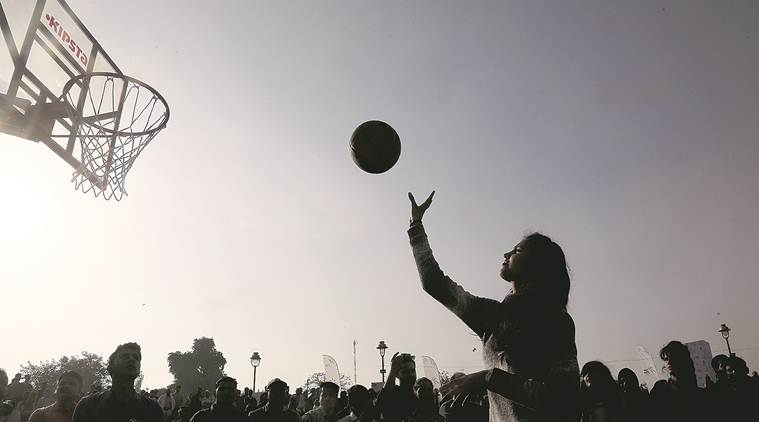
It’s been a long-held myth in the country that sports and studies can’t go hand in hand. There are countless stories of athletes having to give up on education to pursue sport at an elite level. In a new initiative, the Union sports ministry hopes it won’t be a case of “either/or” between sports and studies henceforth.
The government has implemented a new policy, under which all school-going athletes who join national training centres will be provided tuition in mathematics, science and English. Additionally, it is set to roll out another initiative next month wherein it will tie up with residential schools that have sporting facilities.
Sports secretary Radheyshyam Julaniya said they chose English, science and maths as the three subjects because they are tough for children to learn by themselves. “These are a few subjects that the children can’t study without anyone’s help and it’s one of the reasons that hamper their education. Even in the normal course, children and parents find these three subjects challenging. So if they get tutored in these subjects, their academic performance will improve considerably,” Julaniya said.
Every junior athlete who trains at a Sports Authority of India (SAI) centre will be eligible for this scheme. According to the minutes of the meetings that the ministry held with all sports federations, the upper ceiling for remuneration to a tutor would be Rs 15,000 per month. The federations, who select athletes for the national camps, will be responsible to appoint tutors.
“Whenever duration of camp in the summer season is more than 90 days and during the non-summer season more than 45 days subject-wise tuition for English, science and mathematics would be arranged by the (respective federation) or SAI,” the minutes of the meeting read.
How educating athletes helps
The Union sports ministry’s decision to help India’s young sportspersons continue their education even as they compete in sports will help in multiple ways. For one, education is essential for their well-rounded development and makes them more aware and alert in their chosen sport. It also provides them with a sense of security and helps them deal with the low phases in their career. Lastly, it also prepares them for life and an alternate career after their sporting career is over.
On an average, junior athletes join an SAI academy at the age of 13 or 14. Consequently, they are forced to leave schooling mid-way or join an open school from where they complete their basic education. However, due to their practice schedule, they are barely able to attend lectures or appear for exams on time.
There have been numerous occasions where athletes have been unable to complete their studies because of sporting commitments. Shooter Saurabh Chaudhary skipped his Class X exams last year to prepare for the World Cup in New Delhi. Before that, golfer Shubhankar Sharma had to choose between his BA Political Science exams, which were to be conducted by Delhi University’s School of Open Learning, and prestigious PGA Tour events. He eventually chose the latter.
Julaniya said having proper education would assist an athlete’s on-field performance. “Both (sports and studies) can go hand in hand. Both must go hand in hand. If you are physically fit and active, then you are mentally alert. No sportspersons excels at international level till he is very sharp in his observations and reactions. That is what education helps them with,” Julaniya said.
Wrestling Federation of India secretary V N Prasood welcomed the move and said it would immensely benefit the wrestlers. “A lot of wrestlers leave their schools when they join an akhara. Lack of education has been a major reason for them being low at confidence at times. If they are even decently-educated, it will improve their personality and prepare them for life after wrestling,” Prasood said.
He added that learning English would be crucial as it would help them in their bouts. “If they have to challenge a referee’s call, they will be able to do that in a better and more articulate way. It also helps in your interactions with the other wrestlers,” Prasood said.
A couple of years ago, London Olympics bronze medalist Yogeshwar Dutt had considered introducing Russian language course at his academy in Bali, Haryana. That plan hasn’t materialised yet as there were few takers. Asked if he expects similar practical difficulties in implementing this scheme, Julaniya said: “No, I do not foresee any practical difficulties. In fact, we are now approaching residential schools that have sporting facilities so that the students can stay on campus, continue studying and also practice their sport.”
He added: “We have a proposal from a school in Chennai, who said they can accommodate 200-300 sportspersons. There’s also a university in Amritsar where there is existing infrastructure and a tie-up with a national open school. We are working on a policy and hope to roll it out next month. We are working out ways where sports and studies will complement each other rather than be at conflict.”